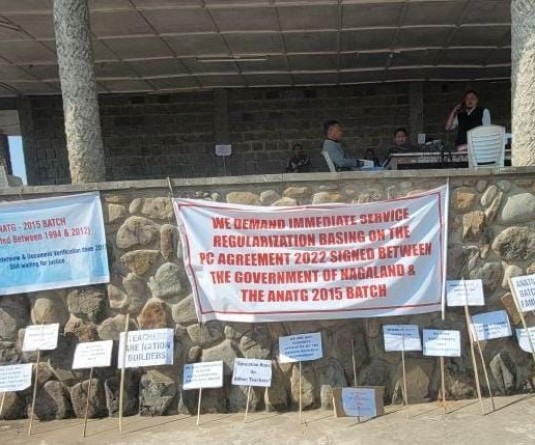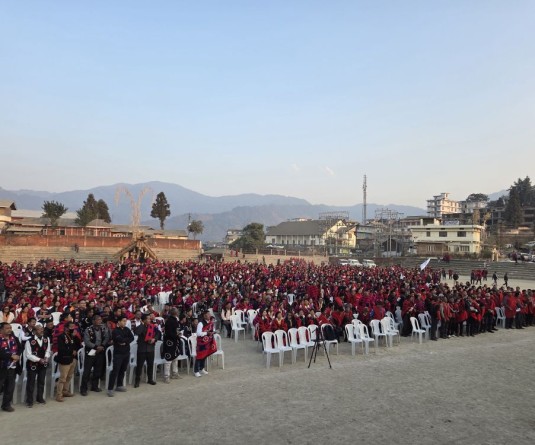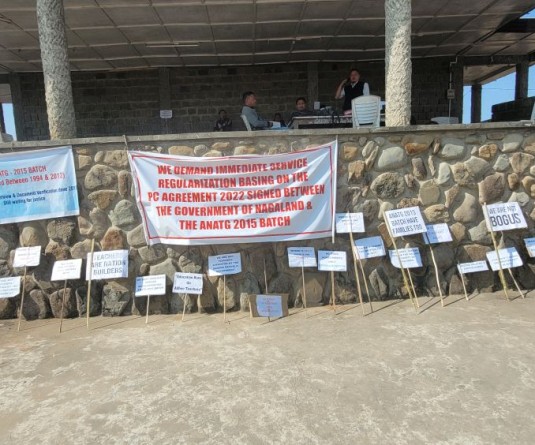Nagaland govt directed to provide pension benefit to 9 Work-charged employees

Nagaland govt directed to provide pension benefit to 9 Work-charged employees
Morung Express News
Dimapur | March 28
The Kohima Bench of the Gauhati High Court has directed the State Government to initiate the process of regularisation of services of nine retired work-charged employees for the purpose of pension benefits, and complete the same within four months.
As per an order issued by the court on March 24, counsel for the petitioners L Likhase Sangtam told the Court that the petitioners were appointed as Work-Charged Labours under the establishment of the Executive Engineer, Public Works Department (Housing), Tuensang Division, Nagaland, and were made to retire on superannuation and released from service by different Release Orders but no pension benefits and other retirement benefits were given to them. Seven of the petitioners had served for 35 years, while the other two had served for 33 years and 27 years respectively.
The counsel submitted that the petitioners having served for so many years with such meager pay must not be allowed to go empty handed as that would mean invasion of their rights under Article 14 and 21 of the Constitution of India.
In the judgement order, a bench comprising of Justice Songkhupchung Serto noted that the petitioners having spent the best part of their lives serving the state, deserve pension benefits from the State. “They are after all, not only citizens of this State but they have also given the best part of their lives for the State,” the order stated.
Government Advocate E Thiba Phom, who appeared for the State contended that the petitioners were appointed as Work-Charged Labours without any sanctioned post and thus cannot have pension benefits. Phom cited an Office Memorandum dated March 17, 2015, issued by the Department of Personnel and Administrative Reforms (Administrative Reforms) wherein it provided for regularization of Work-Charged Employees, who have completed 30 years of service and enjoyed Scale of Pay. “But since the petitioners have not enjoyed Scale of Pay, they are not covered by this OM too,” the counsel told the Court.
The Court, while taking both views into consideration, stated that there is no dispute on the fact that the petitioners were appointed as Work-Charged Labours and were made to serve till superannuation, as per the existing Rules. This in itself shows that the State required and utilised their services till retirement. It noted, “The only palpable reason, for non-creation of post and non-regularization of their services appears to be only due to lack of concern or indifference on the part of the people in authority.”
Pointing out that people serve as Work-Charged Labours “not by choice but by compulsion,” the Court further stated that a Government in a Welfare State should have taken measures for providing better conditions of service and should also have regularized their services. “To do so would have been most just, equitable and reasonable, after all their services had been utilized for the best part of their lives,” it said while pulling up the respondents for choosing not to take any action to alleviate the service conditions of the petitioners.
“The Government in a Welfare State is duty-bound to take care of the welfare of its citizens and not exploit them. Slavery or bonded-labour are things of the past after the country had attained independence. But it appears that in this State the same has continued to exist though it may be under different names. The State ought to have played a model role as an employer so that other employers who are non-State bodies or individuals may follow and treat the citizens of the State with dignity,” it added.
The Court viewed that timely action could have been taken had the people in authority been a little concerned.
“Therefore, to deny the petitioners of their prayer would amount to letting them to be victims of circumstances created or arising out of the lack of concern or indifference of people who are responsible. This cannot be permitted in a State where democratic form of government and principles of Welfare State are in practice and in existence,” the order stated.





.jpg)
